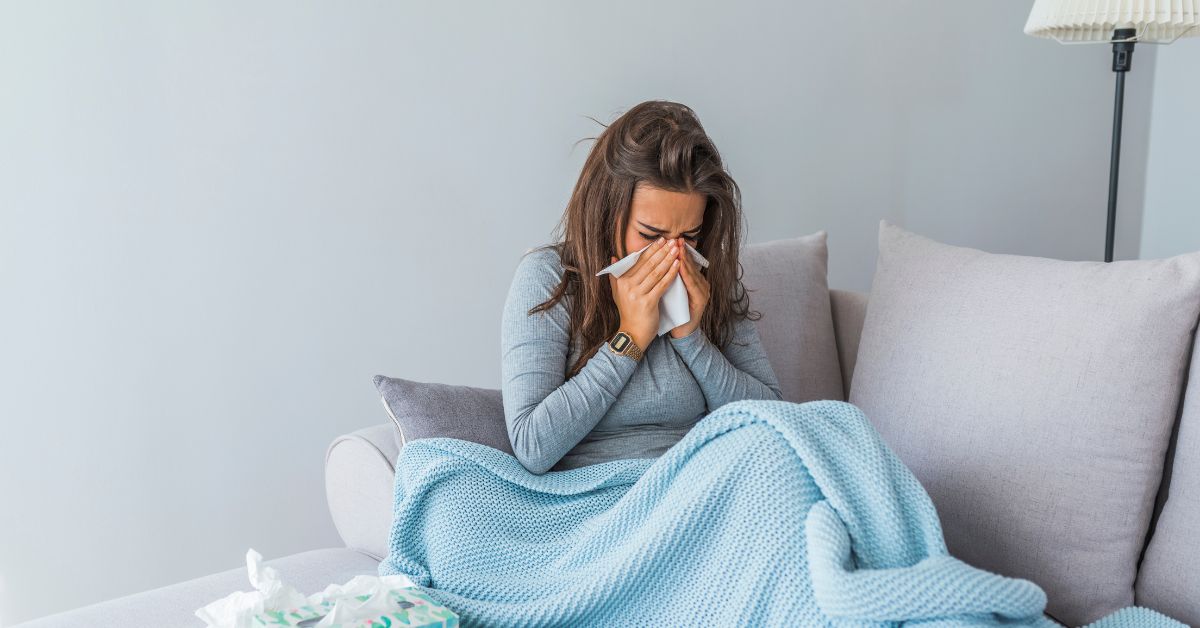This flu season, it’s very important to get your flu and COVID vaccines. The good news is you can get both shots at the same time!
Health officials and experts say that getting your flu and COVID-19 vaccines together is safe and can help you build immunity against both illnesses at the same time.
Can two different vaccines be given at the same time?
In short: it depends. Some vaccines can be combined with others and are often done so, especially during childhood. The most common of these are the DTaP vaccine, which protects against diphtheria, tetanus and pertussis, and the MMR vaccine for measles, mumps and rubella. These combination vaccines are given as a single shot, usually in a series, and may require boosters as you age.
However, other vaccines can be given at the same time, but are administered separately. For example, children can receive the DTaP vaccine at the same visit as the IPV, or polio, vaccine, but are given as two individual shots, often in different limbs.
The same is true for the flu and COVID vaccines. While they’re not currently able to be combined into a single shot, studies show that getting both at the same time is both safe and effective.
What are the benefits?
The benefits of getting both the flu and COVID-19 vaccines at once include:
- Convenience: Instead of putting two appointments on your schedule, getting both vaccines at once is a good use of your time.
- Recovery: If you experience any potential side effects from either vaccine, such as soreness or tiredness, you can recover during a single time period.
- Protection: By getting them both at once, you make sure you receive protection from the current strains of both the flu and COVID-19 viruses.
If you get both vaccines at a single visit, the health care provider should give them to you in separate sites – for example, in two different parts of your shoulder muscle or one in each arm.
Is it safe to get the flu and COVID vaccines together?
Growing research supports the safety of getting your COVID-19 and flu vaccines at once.
The Centers for Disease Control & Prevention (CDC) supports getting both vaccines during one visit. Additionally, a recent British study supports the idea that getting both vaccines at the same time is just as effective and just as safe.
While the CDC says it’s not yet known whether this approach increases the potential for side effects, the British researchers found no additional side effects when people got both shots at the same time. When researchers measured the antibodies of study participants, they observed that giving flu and COVID-19 vaccines at the same time is just as effective as administering them individually.
Who should get both the flu and COVID vaccines?
Experts say that everyone should get flu and COVID vaccines in the fall, whether that means getting a COVID booster or receiving it for the first time. A flu shot is recommended for everyone 6 months and older, but it’s most important for adults who are 65 and older, pregnant people and those with chronic medical conditions or weakened immune systems who may be more high-risk.
The CDC also recommends that everyone ages 6 months and older receive the COVID-19 vaccine.
“Receiving annual flu and COVID-19 vaccination is a safe, easy and effective way to protect ourselves and our family from illness,” Julie Kennon, MD, (pictured above, right) of Mercy Health — Powell County Primary Care, shares. “Being vaccinated reduces the risk of flu associated hospitalizations for our most vulnerable populations, small children and the elderly. I also encourage our healthy and middle-aged population to be vaccinated to reduce transmission to others and to reduce loss of time from work and school.”
Who shouldn’t get these vaccines?
While it’s recommended for most people to receive the flu and COVID vaccines, there are some exceptions. Generally, anyone who has had Guillain-Barre Syndrome, has a history of allergic reaction to the vaccines or is allergic to any of the ingredients should talk with their primary care provider about their options.
COVID, flu and RSV?
Earlier in 2023, the Food and Drug Administration (FDA) approved a new vaccine to protect against respiratory syncytial virus, or RSV, which is a respiratory virus that can be especially dangerous in older adults, immunocompromised people and young children. The FDA also approved an RSV vaccine for use in pregnant people during their third trimester in order to pass maternal antibodies to infants for up to 6 months.
The CDC recommends that adults who are 60 and older get the RSV vaccine in addition to the flu and updated COVID vaccine. While the RSV vaccine can be given with other vaccines, more research needs to be done to determine if combining it with the flu and COVID vaccines can have an effect on their efficacy.
Flu vaccinations are available at our ministry’s primary care practices for existing patients. You can find more information on COVID-19 vaccinations on our website.
Also, both flu and COVID-19 are currently available at most retail pharmacies.






